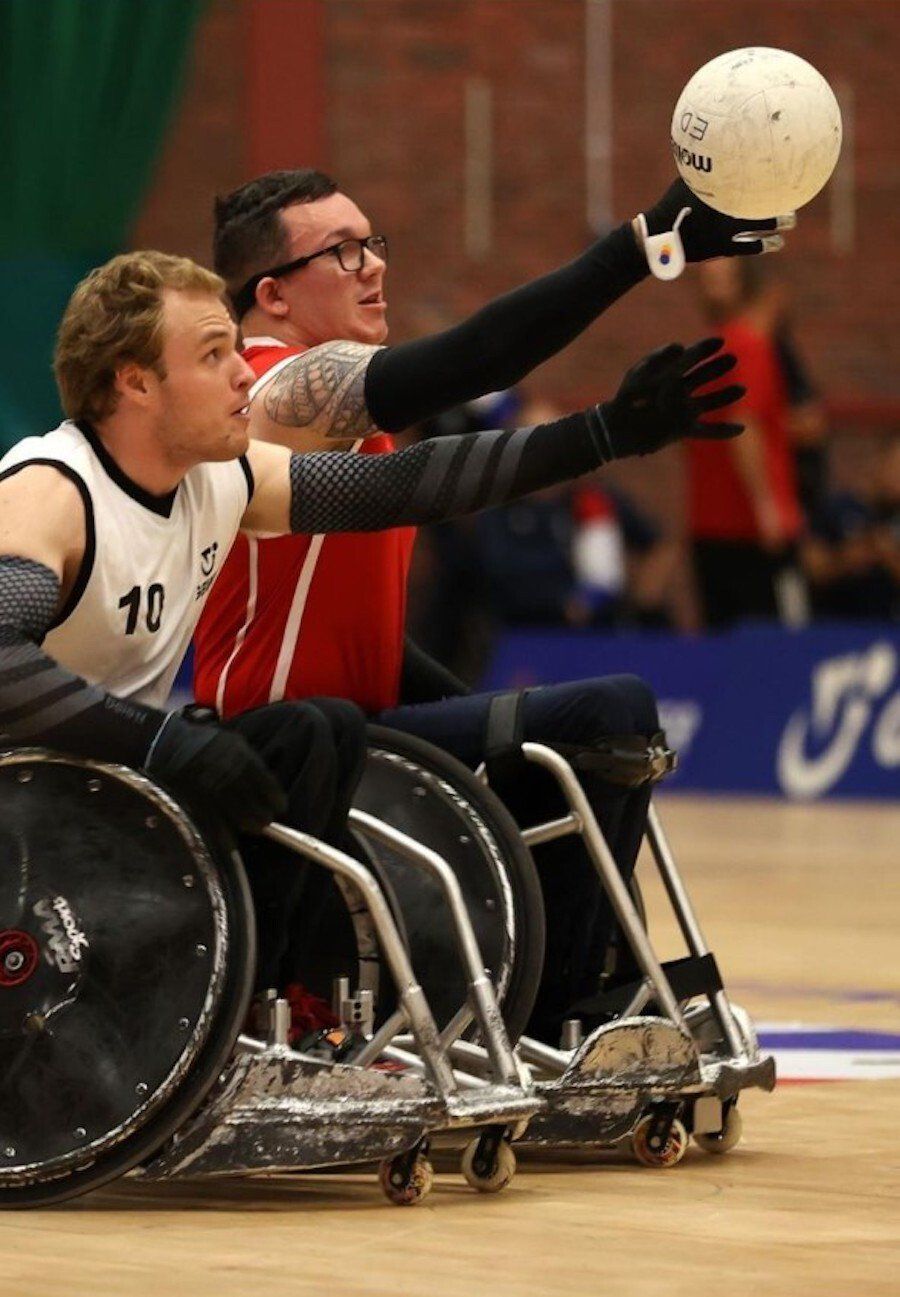George’s fast, furious and full-on paralympic dream
Lighthouse steward on verge of wheelchair rugby elite call

One of the most physical and possibly even savage of all para-sports, wheelchair rugby is fast, furious and full-on.
A member of GB Wheelchair Rugby’s talent pathway squad, just one step below the elite squad that won Olympic Gold in Tokyo last year, the sport is all very far removed from the polite audiences that Lighthouse steward George Rogers helps see to their seats.
“It’s actually nowhere near as dangerous as it might look,” says the friendly 24-year-old with just a hint of a wry smile.
However, to the untutored eye the sight of two teams of four super strong athletes bombing around a court at high speed in what look like “Mad Max-esque tank chairs” according to one insider’s description, is the very definition of dangerous. The sport was invented in the 1970s in Canada and was originally known as Murderball. Enough said.
“True, but in fact, it’s incredibly tactical,” explains George, a para-sports enthusiast from a young age – he completed the London Mini Marathon in a wheelchair at the age of eight and swam competitively as a teenager.
“You have offensive players whose job is to carry the ball and defensive players whose job is to create the space by blocking opposing players. Their chairs are different to facilitate those roles. You have to think about how you score and when you score, how to evade your opponents, when to use time outs, and keep constantly adapting. It’s incredibly fast moving and there’s a lot to think about.”
Wheelchair rugby is played on a regulation basketball court using a volleyball. Men and women compete on the same teams and matches are played in four quarters of eight minutes. Contact between chairs is an integral part of the game, but physical contact between players is not allowed.
George started playing wheelchair rugby for Solent Sharks while studying Film Production at Solent University. Having been selected for GB Wheelchair Rugby’s talent pathway he now attends monthly training camps at Lilleshall as he works towards joining the elite squad camps where he’ll play alongside the paralympic team.
“Seeing GB win gold in Tokyo was incredibly inspiring, but obviously nothing’s guaranteed so I keep working to be the best I can be, then we’ll see what happens.
“In the immediate future, my focus is on a trip to Alabama with GB Talent in November to play the US Development Team. We'll be playing them several times over the course of a week. The USA are a superpower in the sport and it's incredibly exciting to be heading out there to play internationally.”
To be eligible to play wheelchair rugby athletes must have impairments to their legs and arms. Many have spinal injuries, some with full or partial paralysis, while others with amputations, polio, muscular dystrophy and cerebral palsy (like George) may also be eligible to play.
“Having cerebral palsy is all I’ve ever known,” adds George. “Some of the guys I play with have had to make tremendous adjustments in their lives, which is a very different experience to mine.”
The elite squad are professional athletes and although funding is available to George for expenses including travel, accommodation, kit and a bespoke fitted chair, he relies on his “incredibly supportive” family, as well as his job at Lighthouse.
“I’ve worked at Lighthouse since I was 17 – it was my first job and I love it. I’ve always been a huge film and television fan so working in the Cinema has always been my favourite job at Lighthouse.
“I went away to study at Solent and although the course didn’t really suit me, I got a job at Pinewood Studios as a production assistant. I worked on Black Widow and was there when they were shooting No Time To Die. It was an amazing experience, but I also learned that the film industry is one of the least accessible sectors there is to work in.”
Injuries and loss of form notwithstanding, wheelchair rugby players can enjoy careers at the top of the sport until well into their forties, so George has time to progress at his own rate, but inevitably he has an eye on the future.
“I don’t want to close any doors at this stage,” he says. “I like the idea of coaching perhaps and passing on what I have learned, but perhaps I’ll also have an opportunity to pursue my love of the media side of things, maybe even film making.”
There is, as they say, everything to play for.


